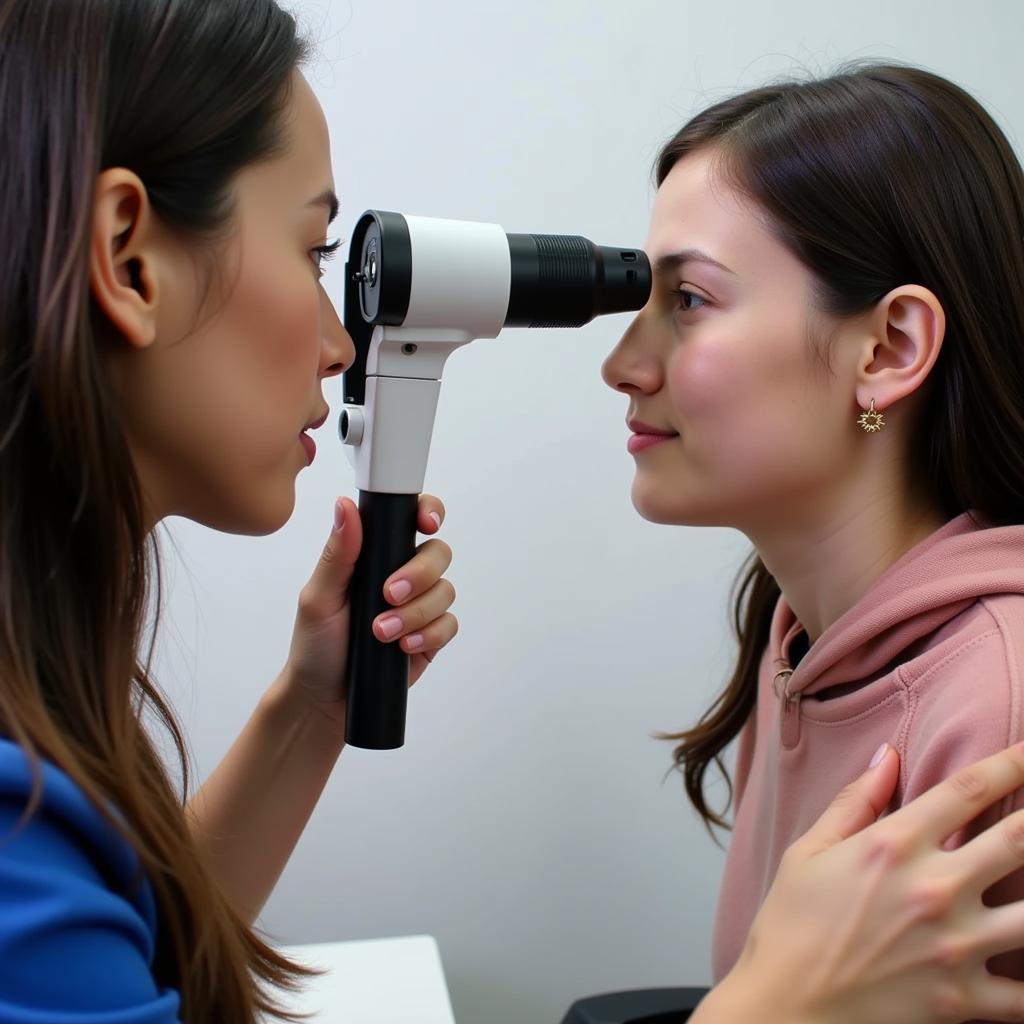Ophthalmoscopic examinations are important diagnostic tools because they offer a direct view into the health of your eyes and, surprisingly, can reveal underlying systemic conditions. This non-invasive procedure allows medical professionals to assess the interior structures of the eye, providing valuable insights into not only eye health but also overall well-being. From detecting early signs of glaucoma to identifying potential neurological issues, the ophthalmoscope plays a crucial role in preventative care and diagnosis.
Uncovering Hidden Health Issues with Ophthalmoscopic Examinations
Ophthalmoscopic examinations, while primarily used for eye health, can also reveal systemic diseases. The retina, viewed through an ophthalmoscope, acts as a window to the body’s vascular system. Changes in the retinal blood vessels can indicate conditions like hypertension, diabetes, and even some autoimmune diseases. This ability to provide a glimpse into the body’s internal health makes the ophthalmoscopic exam a powerful tool for early detection and intervention.
Why are ophthalmoscopic examinations important for diabetic patients?
Diabetic retinopathy is a leading cause of blindness and an ophthalmoscopic examination is crucial for early detection. This examination allows doctors to identify the telltale signs of the disease, such as microaneurysms, hemorrhages, and neovascularization. Early diagnosis and treatment can significantly slow the progression of diabetic retinopathy and preserve vision.
How does an ophthalmoscope work in detecting glaucoma?
Glaucoma, often referred to as the “silent thief of sight,” can be detected during an ophthalmoscopic examination. The ophthalmoscope allows doctors to assess the optic nerve for signs of damage, a key indicator of glaucoma. Early detection of glaucoma through this examination is vital for preserving vision, as early treatment can effectively slow its progression.
Beyond the Eyes: Systemic Diseases Revealed
Ophthalmoscopic examinations aren’t just for eye conditions. Changes in the retina can reflect systemic issues, like high blood pressure and atherosclerosis. By observing the blood vessels in the retina, doctors can gain valuable insights into the overall health of the circulatory system. This makes ophthalmoscopy a valuable tool in managing chronic conditions.
Can ophthalmoscopic examinations detect neurological problems?
Believe it or not, ophthalmoscopic examinations can offer clues about neurological health. Swelling of the optic nerve, visible through an ophthalmoscope, can sometimes indicate increased intracranial pressure, a sign of potential neurological problems. This ability to provide information about the nervous system adds another dimension to the importance of this exam.
“Regular ophthalmoscopic examinations are essential, not just for maintaining eye health but also for detecting underlying systemic issues. The eye truly is a window to the body,” says Dr. Amelia Carter, MD, a leading ophthalmologist.
The Importance of Regular Ophthalmoscopic Examinations
Routine ophthalmoscopic examinations, particularly as we age, are crucial for preventative care. They can detect early signs of eye disease and other health problems before they cause significant damage. This early detection can lead to timely intervention and better health outcomes. “Don’t wait until you experience vision problems. Regular eye exams, including ophthalmoscopy, are an investment in your long-term health,” advises Dr. Michael Davis, OD, a respected optometrist.
 Regular Ophthalmoscopic Exam for Preventative Care
Regular Ophthalmoscopic Exam for Preventative Care
In conclusion, ophthalmoscopic examinations are important diagnostic tools for more than just eye health. Their ability to reveal underlying systemic conditions, like diabetes, hypertension, and even neurological problems, underscores their significance in overall healthcare. Regular eye exams, including ophthalmoscopy, are essential for early detection, timely intervention, and better health outcomes. For expert advice and advanced diagnostic tools, connect with ScanToolUS at +1 (641) 206-8880 or visit our office at 1615 S Laramie Ave, Cicero, IL 60804, USA.
FAQ
- How often should I have an ophthalmoscopic examination?
- Is an ophthalmoscopic examination painful?
- How long does an ophthalmoscopic examination take?
- What should I expect during an ophthalmoscopic examination?
- Are there any risks associated with an ophthalmoscopic examination?
- What are the different types of ophthalmoscopes?
- How can I find a qualified eye doctor to perform an ophthalmoscopic examination?


